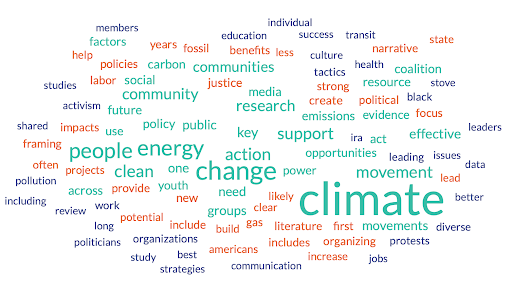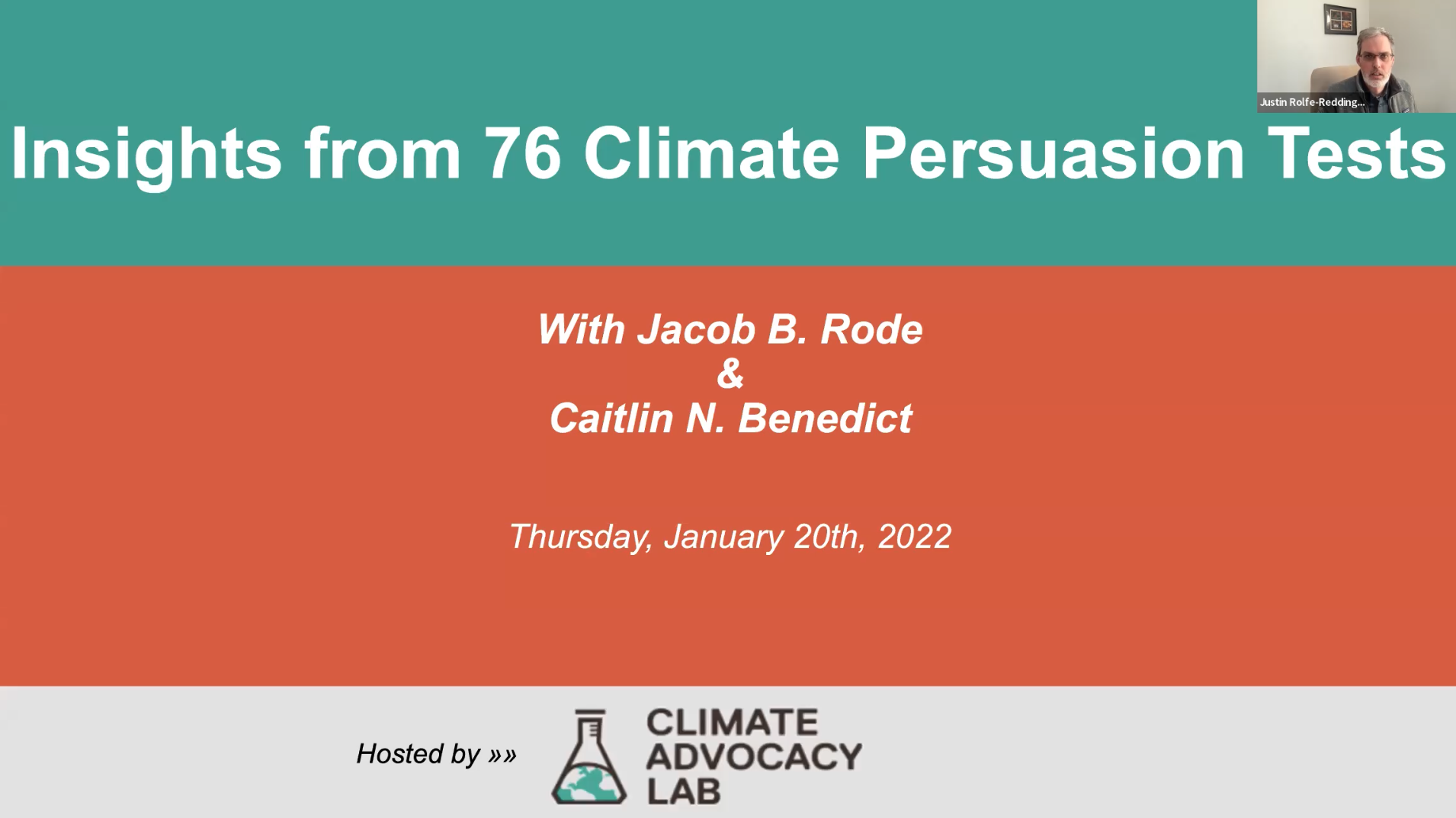Resources
Search below for resources covering the intersection of climate engagement, social science and data analytics.
RESULTS
Notable research of 2023

Inflation Reduction Act
Community Ownership of Solar with Cleveland Owns
In Cleveland, OH, the nonprofit Cleveland Owns is incubating the state's first community-owned solar developer, Cleveland Solar Cooperative, which was the subject of a recent case study funded by the Climate Advocacy Lab.
On the call, organizers shared lessons learned, their motivations to keep at this work, and best practices for groups around the country working to build community-owned solar arrays. The insights shared in this webinar will inform advocates working to start community-owned solar projects, provide practical tips for groups building relationships with the goal of taking action for climate justice, and introduce attendees to a national network of organizations that support projects like this around the country.
Insights from 76 Climate Persuasion Tests
Optimize your climate messaging with the surprising results and important guidance gleaned from 76 climate persuasion experiments, presented by the social scientists who collectively analyzed them. Individual studies come out all the time (and the Lab loves to let you know about all of them), but it can be difficult to piece together the big picture from all the data points. That’s why it’s so valuable when researchers occasionally comprehensively review and synthesize a whole body of studies, such as this combined analysis of dozens of separate climate persuasion experiments in the US from the last 10 years. The social scientists will also share insights from their review of research on reducing political polarization on climate.
Tipsheet: 6 Evidence-Based Insights for Relational Organizing
This tipsheet covers six principles to help organizations interested in developing and implementing a relational organizing strategy. These tips include:
- Relationships are key to keeping people engaged and ready to take action
- Developing a relational organizing strategy takes time
- A variety of relational organizing approaches is the spice of life!
- Relational organizing is power-building
- 1-on-1s are about creating long-lasting, transformative relationships
- Relational organizing and cultural organizing can be very effective together

